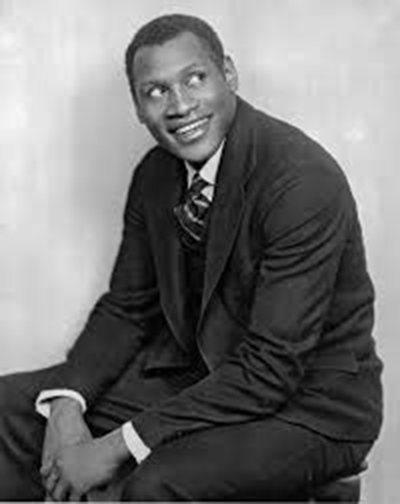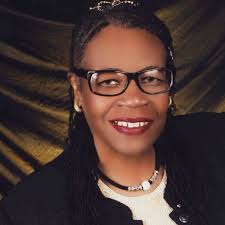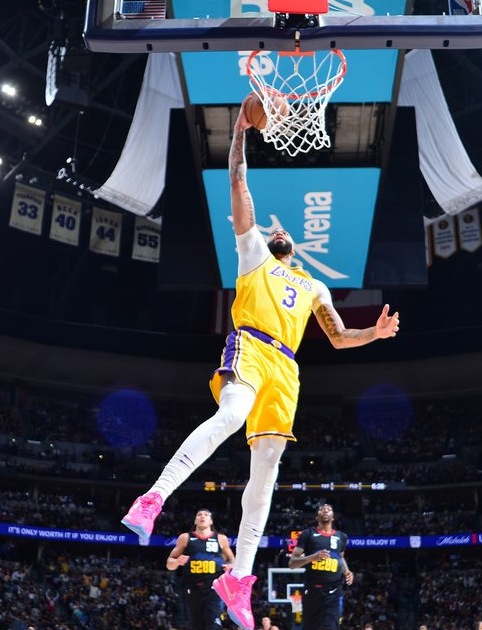By Darlene Donloe
Contributing Writer
Paul Robeson was a commanding figure.
Often called a Renaissance man, Robeson’s designations were vast and impressive.
He was a social activist, humanitarian, actor, singer, attorney, scholar and athlete who also spoke 20 languages.
An outstanding athlete, he won 15 varsity letters in football, basketball, baseball and track at Rutgers College, where he was a two-time All-American in football and eventually inducted into the College Football Hall of Fame.
While at Rutgers, he was given the nickname, “Robey.”
Known for speaking truth to power and fighting for human dignity and democratic rights, Robeson, who died in 1976, was fearless when it came to the consequences of speaking out, some of which, it turned out, proved to be personally and professionally life-altering.

He once said, “As an artist, I come to sing, but as a citizen, I will always speak for peace, and no one can silence me in this.”
His accomplishments, life, and legacy will be celebrated from 1 to 7 p.m. April 9, when the Robey Theatre hosts the Paul Robeson 125th Birthday Celebration.
His birthday is being celebrated internationally by member organizations of the Paul Robeson Alliance, of which the Robey is a member. Harry Belafonte and Danny Glover are the honorary chairs of the birthday celebration.
The event will include his music, and original scenes depicting episodes of his life written by members of the Robey Playwrights Lab and will be performed by the actors of the Robey Theatre Company.
Ben Guillory, the co-founder and producing artistic director of the Robey Theatre, will perform a dramatic monologue as Robeson.
Guillory and Glover, who co-founded the Robey Theatre in 1994, will also host a conversation on Robeson’s legacy.
The free event will also include a screening of two of his films, “The Tallest Tree in Our Forest” and “The Proud Valley,” plus light refreshments.
A passionate champion of the arts, Guillory, who loves what he does, said the theatrical company was “inspired by Paul Robeson.”
I recently spoke to Guillory about the upcoming birthday celebration.
DD: Tell me about the conversation you and Danny Glover had regarding the launch of the Robey Theatre in 1994.
BG: We talked about it in the 70s. We were young Turks living in San Francisco. We were having coffee and kickin’ it. We were both at the American Conservatory Theater. There wasn’t a lot of work for actors of color, Black actors specifically. Well, not the kind of work we wanted, which was and is socially conscious theater plays.
DD: So, what part did Paul Robeson play in your conversations?
BG: I was doing a play called, “Are You Now or Have You Ever Been?” I played Robeson. Before that, I was vaguely familiar with him. I knew he had done some films. I knew he sang, “Ol’ Man River” and read something about him being a Communist. When I started doing research, I started to understand who he was. There was a lot more to him.
DD: He was called a Renaissance man.
BG: Renaissance Man is the apt title for Robeson. He was the most popular artist in the world. He was a superstar by today’s standards. He’s an iconic, giant figure that represents so many wonderful things. He was just a humanitarian who believed in the goodness of man. All he had to do was keep quiet and he could have gone on with his career. But he didn’t want to remain silent on important issues.
DD: What else did you find out about him in your research?
BG: He had a social consciousness that developed while he traveled. He started to understand it was more about the haves and the have-nots. He understood it was a caste system. It was more about money. Racism was also there. He decided he needed to speak out.
He would have press conferences. Without biting his tongue, he would say Jim Crow was thriving in America, and so was racism. His social consciousness leaned toward socialism. It was in the 40s when he started to speak out aggressively about how America was treating its Black citizens. He talked about how the Black men who fought in World War II, were being lynched and abused in their uniforms when they returned home. He was being listened to.
DD: His speaking out was at a cost.
BG: For eight years he was blacklisted and couldn’t travel outside of America. He couldn’t make a living. He lost everything. They took his passport. Remember, at one point he was living very well. That’s where the courage comes in — when he knew what he was doing. He continued to speak out against imperialism and racism. He knew it was going to damage his career.
He knew his life as he knew it was going to go away — but he felt he had to continue to speak out. Every artist needs to make a choice between freedom and slavery. He is the inspiration for the theater company. Yes, by naming it the Robey Theater, which was his nickname, we pay homage to what he stood for.
DD: So what was your’s and Danny Glover’s goal?
BG: Danny and I continued talking. We knew as two Black men that we wanted to do a certain kind of work and Robeson represented the kind of work we wanted to do. Being a working actor and chiseling out a career is difficult.
So Danny and I decided that when we did well, we would start a theater company. We are going on our 30th year. Yes, there were and are tough times. Things have gone well. Theater is the stepchild of television and film in this city.
DD: What was your vision of what the Robey Theatre would/could be?
BG: The vision of Robey is … I’m not interested in doing plays that are wonderful about the white experience. I grew up watching that. We have been omitted for so long from the mainstream. We haven’t had the opportunities to develop the Black theater experience and tell the stories of the Black experience. People say things have changed — look again. They haven’t changed that much.
I’m not interested in mimicking the Black experience and covering it with a white veneer. We have stories. So many. We haven’t had the opportunity to develop them. That’s what Robey is all about. We want to equip people to develop those stories.
DD: Why should people care about Paul Robeson’s 125th birthday celebration?
BG: He deserves all of the accolades and fervor and salutes. He paid the price.
DD: What would you like people to know?
BG: I’d like them to RSVP for the event. Talking about Paul is one thing. Talking about Robey is a supplement to Paul. We’ve been doing pretty well. We have produced over 40 plays in 30 years. We’ve done one-acts and full-length plays. We have done it with spit and gum. We are making it work.
All of the artists and technicians who have been a part of Robey have made it a stalwart company. Anyone we’ve worked with is part of the Robey Company. We can’t do this work without everyone. A Black point of view is what we do and what we are. It’s not about a paycheck. It’s about the work.
Paul Robeson’s 125th birthday celebration will be held from 1 to 7 p.m. April 9 at the Robey Theatre Company, Los Angeles Theatre Center, 514 S. Spring St., Los Angeles, 90013. For information, visit http://therobeytheatrecompany.org.
Darlene Donloe is a freelance reporter for Wave Newspapers who covers South Los Angeles. She can be reached at ddonloe@gmail.com.












